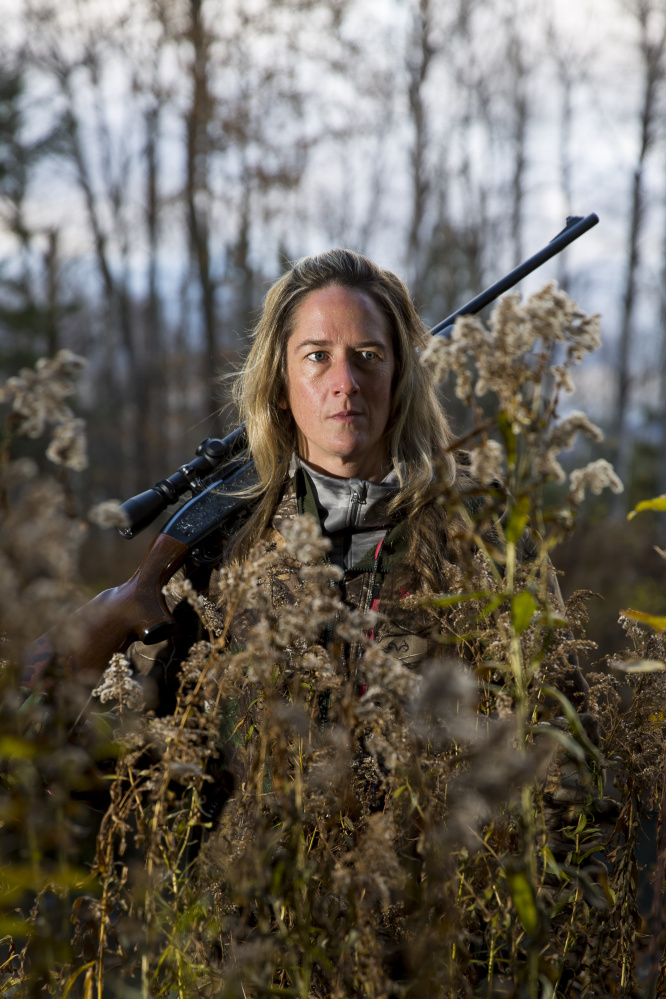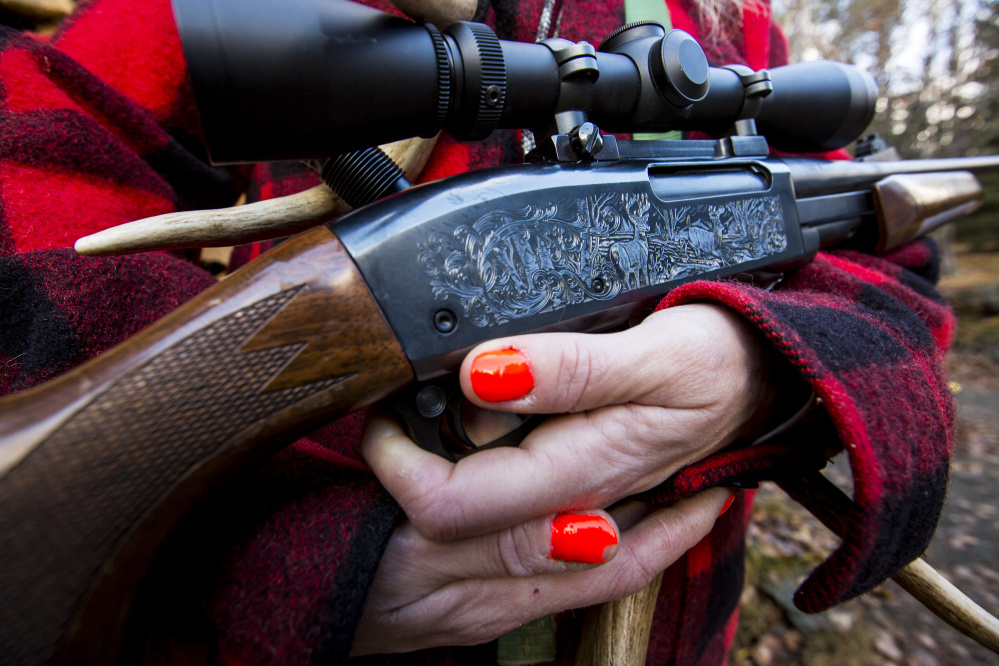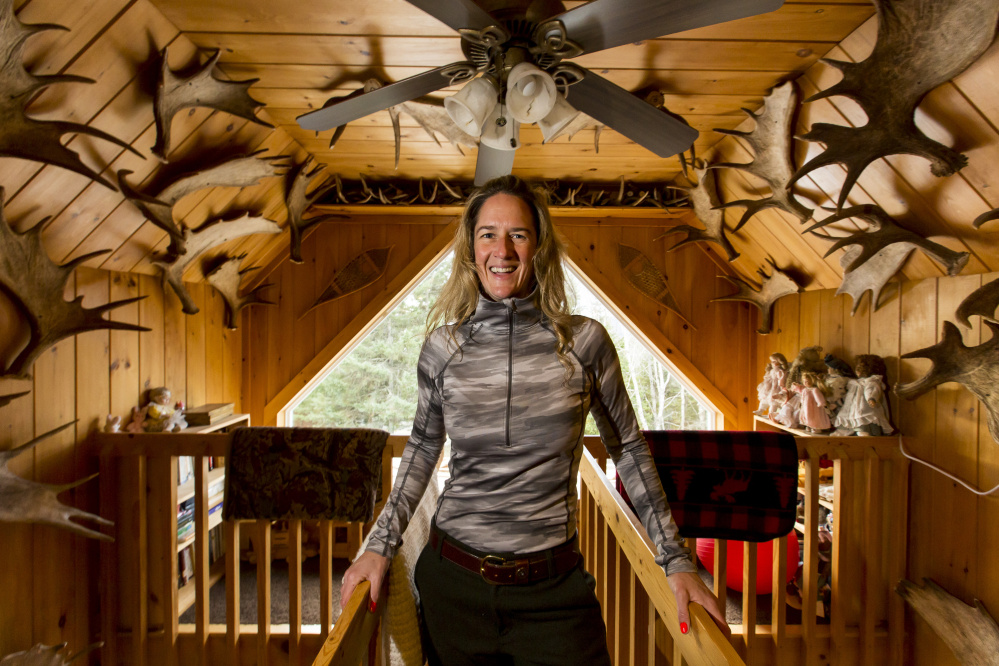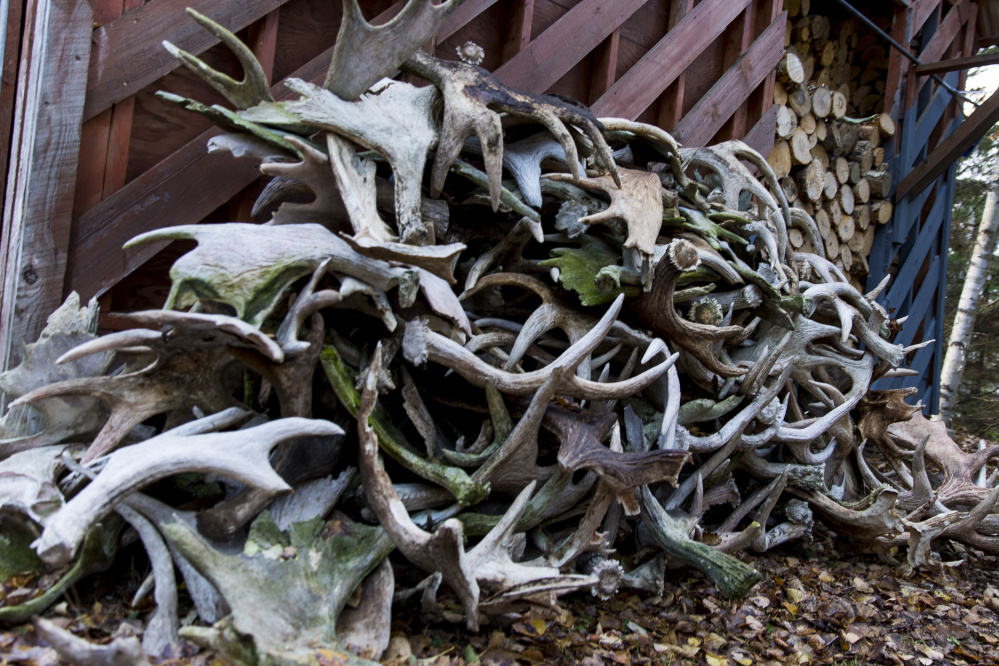When Maine’s firearm season for white-tailed deer opens Saturday, there’s sure to be more female hunters in the field than a decade ago.
The percentage of Maine hunting licenses sold to women has grown steadily over the past 10 years, rising from 8.1 percent in 2005 to 12.4 percent in 2014, according to the Department of Inland Fisheries and Wildlife. The increase mirrors a national trend that is likely to continue.
“On the Maine Moose Hunting Facebook page this year, the majority of the photos were from women, which is pretty awesome,” said Liz Walker, a hunter for 31 years.
Walker left her home in Rangeley on Friday bound for a remote hunting experience at a camp deep in the woods near the Canadian border. A Brunswick native, Walker always has made stalking whitetails part of her fall. She is seeing more women taking an interest in her lifelong passion, and says it’s about time.
“There has been a big increase in women doing outdoor sports. A lot of it has to do with acceptance of women in the outdoors,” she said. “Companies are starting to realize this. They are catering more to women, making guns with a shorter stock.”
Last year, 196,100 Maine residents bought annual hunting licenses. About 24,000 of them were women. The percentage of female hunters is an estimate by Inland Fisheries and Wildlife, because store owners and town hall clerks who sell hunting licenses do not always record a hunter’s gender. However, department spokesman Mark Latti said the percentages are an accurate portrait of the changing demographics of a pursuit historically dominated by men.
Nationally, the number of women hunters has climbed steadily for the past 25 years, according to the U.S. Fish and Wildlife Service. The most recent numbers from the service show women made up 9 percent (or 1.2 million) of all U.S. hunters in 2006 and rose to 11 percent (or 1.5 million) in 2011. That year, 13.7 million hunters purchased licenses nationwide.
David Trahan, executive director of the Sportsman’s Alliance of Maine, has noticed more women at rod-and-gun clubs and sportsmen’s shows. He is among those who say one reason more women are entering the sport is a desire for organic, chemical-free food.
“We’ve been seeing it the last five years,” Trahan said. “There is a real shift who are obsessed with it. Women are paying more attention to the food they eat. Wild game has no preservatives. That’s definitely a component of it.”
At wild-game registration stations, more female hunters are coming to tag deer compared to a decade ago.
“I know a lot more women are putting in for a moose permit,” said Jennifer Johnson, owner of Johnson’s Sporting Goods in Brunswick, a tagging station that gets more than 100 deer harvests each year.
In Wells, another town where upwards of 100 deer are killed by hunters annually, the rise in women taking the field is clear.
“There has been an increase in the past 10 years,” said Mohamedali Altaf, the store manager at Chase’s Convenience Store, a tagging station. “I would say five to six years ago you started to see more women. Now about 10 percent of the hunters tagging here are women. Last year we tagged about 200 deer. There were about 20 women hunters.”
The rise in women interested in hunting also has been obvious to the coordinators for Maine’s hunter-safety course, a 12-hour class that is required to get a hunting license.
Perry Edwards, the Oxford County course coordinator, said his classes now are often half women.
Jon Southern of Perry, who oversees safety classes in Hancock and Washington counties, used to see only a few women per class. Now in his classes of 35 to 40 students, women outnumber men.
“In some classes we have seen as much as 65 percent women students. It’s a remarkable shift,” he said.
And Craig Gerry in Solon, the Kennebec County coordinator, said half the students in his classes are women. And many, he added, will hunt on their own.
“Several have stated they want to hunt because the meat is so much better for you than store-bought (with) chemicals,” Gerry said. “I have also heard that they enjoy the time outdoors, and hunting gives them time to recharge and get close to nature.”
Walker says the trend will continue in Maine.
“I think because we have such valuable natural resources here. We are the Pine Tree State and so many women want to take advantage of that,” Walker said. “I think more women are going to be accepted in outdoor sports and show they’re good at it.”
Send questions/comments to the editors.







Comments are no longer available on this story